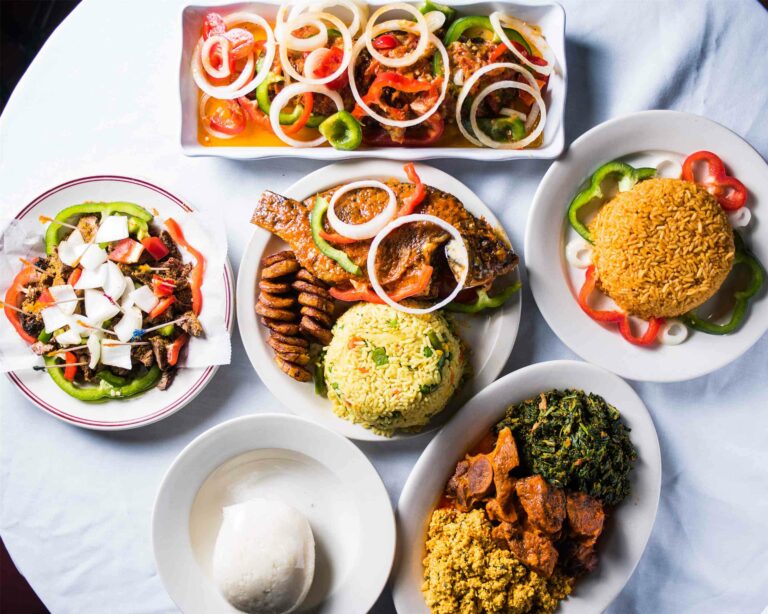Introduction: Liberian Cuisine
Liberian cuisine is an amalgamation of various ethnicities and cultures that have come together over time. The country’s cuisine is characterized by the use of indigenous ingredients, spices, and cooking techniques that have been passed down through generations. The food in Liberia is heavily influenced by the country’s history and the cultures that have played a significant role in shaping it.
The Influence of Liberian History
Liberia’s history has played a significant role in shaping the country’s cuisine. The country’s cuisine is influenced by the traditional cooking techniques and ingredients used by its indigenous tribes. However, the arrival of colonial powers in Liberia also had a significant impact on the country’s cuisine.
Colonial Period and Its Impact on Cuisine
Liberia was under the control of various colonial powers, including the Portuguese, Dutch, and British. These colonial powers brought with them their own culinary traditions, which were then incorporated into the local cuisine. For example, rice was introduced to Liberia during the colonial period and has since become a staple in Liberian cuisine.
The Influence of West African Cuisine
Liberia’s proximity to other West African countries has also influenced its cuisine. Many of the dishes in Liberia are similar to those found in neighboring countries such as Sierra Leone, Guinea, and Ivory Coast. West African cuisine is characterized by the use of peanuts, cassava, plantains, and yams, all of which are prevalent in Liberian cuisine.
Indigenous Ingredients in Liberian Cuisine
Liberian cuisine is heavily reliant on indigenous ingredients such as fish, cassava, plantains, and yams. These ingredients are used to create traditional dishes such as jollof rice, fufu, and pepper soup. The use of local ingredients is an essential part of Liberian cuisine and has helped to shape the country’s culinary traditions.
Contemporary Liberian Cuisine and Its Evolution
Contemporary Liberian cuisine has evolved to reflect the changing tastes and preferences of its people. Many Liberians now incorporate elements of other cuisines into their cooking, including Chinese, Indian, and American. Additionally, many Liberians are now using modern cooking techniques and equipment to prepare their food.
In conclusion, Liberian cuisine is a reflection of the country’s history and the various cultures that have influenced it over time. Traditional cooking techniques, indigenous ingredients, and the impact of colonial powers and neighboring countries have all played a significant role in shaping Liberian cuisine. Contemporary Liberian cuisine continues to evolve, reflecting the changing tastes and preferences of its people.

